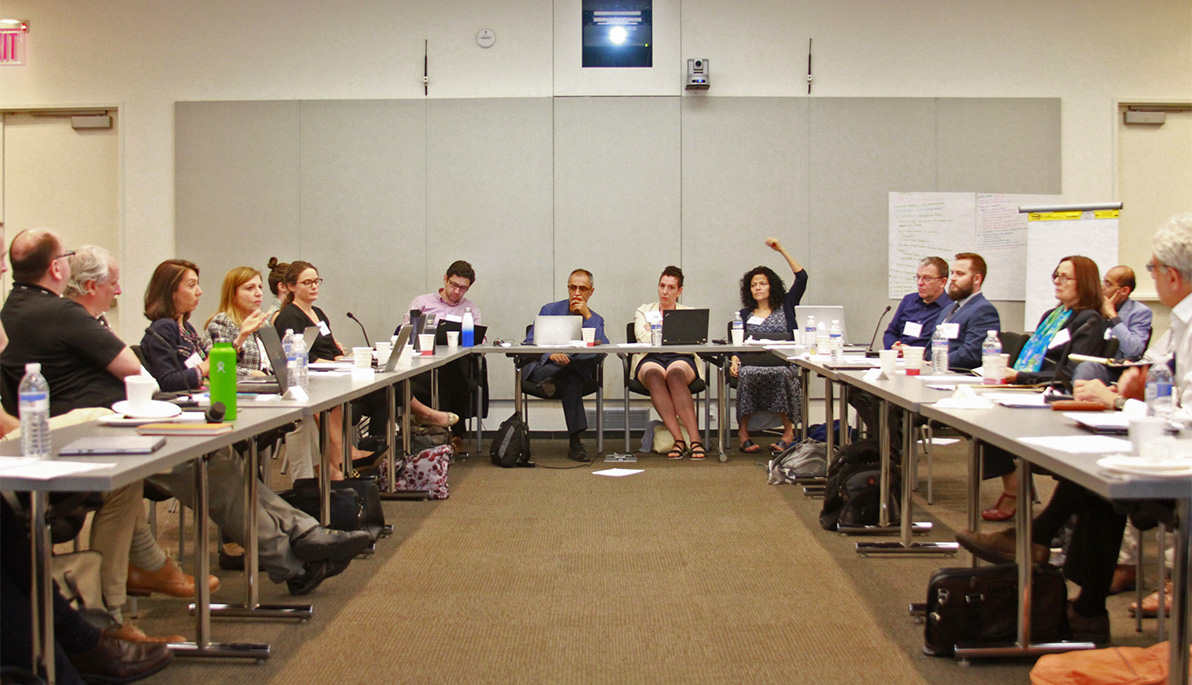News
News Brief: FEW Researchers Strategize at NYIT
June 20, 2018
A group of passionate scientists, engineers, and urban designers met at NYIT on June 15 to advance a National Science Foundation-supported project promoting interdisciplinary research into urban infrastructure and holistic approaches for managing food, energy, and water (FEW) resources worldwide. The goal of the meetings was to plan a new “research coordination network” (RCN), which will bring together research teams to study issues surrounding how best to provide FEW resources while accounting for variables like population growth, urbanization, aging infrastructure, and extreme weather events.
About two dozen scholars surveyed the research landscape in the complicated nexus of FEW studies, which includes engineering, data science, social science, energy management, environmental science, and urban and regional design, among others.
The planned RCN, an outcome of a workshop held at NYIT late last year, has adopted the city-as-lab concept to advance scientific contributions toward a healthy, prosperous, and resilient future. The emerging network will be composed of three New York City institutions (NYIT, City University of New York, and New York University) as well as the following research institutions around the nation:
- Brookhaven National Laboratory
- Georgia Institute of Technology
- Illinois Institute of Technology
- Louisiana State University
- National Center for Atmospheric Research
- New Jersey Institute of Technology
- Oak Ridge National Laboratory
- Rochester Institute of Technology
- Stanford University
- Texas A&M University
- University of Michigan
- University of Tennessee
The group will work with New York City agencies, eleven of which have already entered exploratory partnerships with the RCN, as well as with non-governmental entities.
According to the project leader Ziqian (Cecilia) Dong, Ph.D., associate professor in NYIT School of Engineering and Computing Sciences, the network will tackle challenges beyond the scientific side of research. “We want to engage stakeholders in order for research results to have a more immediate and bigger impact on policy,” she said.
In addition to Dong, the project’s steering committee includes Marta Panero, Ph.D., director of strategic partnerships in the School of Engineering and Computing Sciences; Masoud Ghandehari, Ph.D., of NYU’s Tandon School of Engineering; energy engineer Michael Bobker of CUNY’s Building Performance Lab; and Jeffrey Raven, associate professor and director of NYIT’s M.S. in Urban and Regional Design in the School of Architecture and Design.






